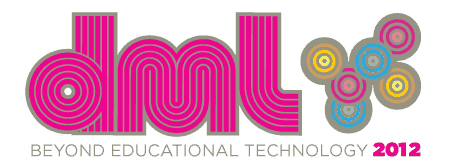DML: Universal Designs for DML: Innovations for Students with Disabilities
Special education and Universal Design for Learning (UDL) have been nearly absent from
DML discussions. Students with disabilities, as well as their teachers and parents, are often
marginalized from these crucial conversations, widening the digital “participation gap.” This
innovative panel will begin to fill this gap by exploring practices, products, and
methodologies based in UDL. In doing so, we hope to champion a plurality of paths to
inclusive cultural and civic participation. We will present research from a variety of
disciplines (computer science, communication, special education), a range of stakeholders
(industry developers, speech and language pathology school practitioners, academic
researchers), and multiple international perspectives.
Alexandra Dunn:
This presentation focuses on “smart inclusion” - a UDL toolkit for students and educators
including emerging technology (e.g., interactive whiteboards, iPads, Nintendo DSi), in
conjunction with what is generally thought of as “special needs” software/hardware. Acting
as a catalyst for inclusive classroom practices, this approach is “necessary for some, good
for all.” Combining technology with good instruction enhances educational and social
participation for ALL students including those with disabilities. This initiative is data-driven
with outcomes in both teacher training and student social and academic participation.
Meryl Alper:
This presentation bridges the underexplored relationships between blindness and visual impairment and the New Media Literacies in order to better account for how expanding notions of literacy are enmeshed with the affordances of specific technologies. The presenter will draw parallels in the “hacking” of technology to better suit young children with disabilities, as well as the issue of declining literacies in the form a much debated US “Braille literacy crisis.”
Juan Pablo Hourcade:
In spite of great improvements in early diagnosis and interventions, most children diagnosed with Autism Spectrum Disorders (ASD) are unlikely to live independently when they reach adulthood. We have been conducting research on novel computer-based interventions with the goal of promoting social skills. Working with more than 40 children with ASD, their teachers, and other stakeholders, we have iteratively developed a set of activities based on applications that run on multitouch tablets. Our observations suggest these activities increased pro-social behaviors such as collaboration and coordination, augmented appreciation for social activities, and provided children with novel forms of expression.
Sooin Lee:
Touch-based technology opens the door to independent play for toddlers and young children with special needs. What role do game designers play in developing high-quality learning experiences that can be used by parents and therapists to address the cognitive, fine-motor, and speech delays of children with special needs? The presenter will share her best practices for designing award winning learning games that are fun to play and accessible to children with autism and developmental delays.
James D. Basham and Maya Israel:
Panelists will discuss research and design of a mobile learning system for iOS devices dubbed the Interactive Field Investigation Guide (iFIG). Based on the instructional design framework of UDL and gaming technology, the iFIG integrates learner analytics and instructional protocols to provide all learners with an individualized, accessible, and engaging learning experience.



